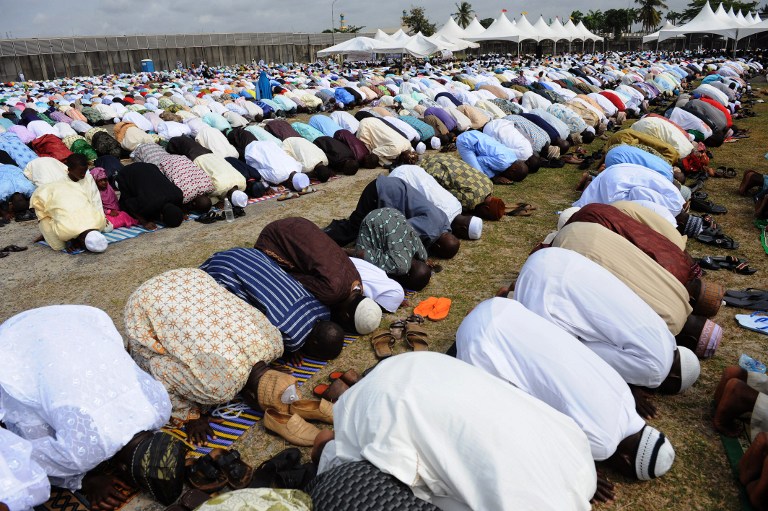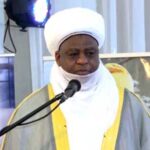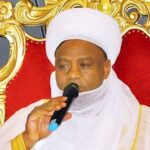There will be a few people who will be unhappy that I disregarded their advise and decided to publish my thoughts on the state of the faith in the lives of Nigerian Muslims.
They said it is a dangerous territory, and it will be a futile exercise.
They mean well, but so do I.
In the end it was anger that decided it for me.
I thought, there we were, all comfy and distant from the basic teachings of our faith when we were rudely awakened by COVID-19.
Our Ulama rushed to inform us that pandemics are routine acts from Allah, and this is just one among many that He had sent to mankind.
There are protocols in dealing with it, they told us.
Move closer to Allah, ask for His forgiveness and give up sins that had become second nature to us.
Stay put if you are in an area affected by the pandemic, and do not travel to an area that is affected.
Take precautions to stay healthy and alive.
If you die in a pandemic, and your faith and degree of submission to the will of Allah are sound, you are promised Allah’s favour for admission in Aljannah.
What else but the Will of Allah will reduce both great and powerful nations, and others, which can barely survive, to their knees all at the same time?
A virus that is not even alive, but induces panic and unprecedented helplessness and destruction upon the whole of humanity, can only be an act of God.
Those who know said we can assume a number of important motives behind the pandemic.
One is that it is a reminder to us that there is only one real power, Allah.
Another is that we have transgressed too far from the path, and Allah reminds us to repent and return to an existence that He will be pleased with; examine ourselves as individuals and as a community and take steps to improve our lives as Muslims.
Then and have faith.
And do what we are told to do by leaders during pandemics.
So, we humbled ourselves and began to pray fervently for forgiveness and relief and the strength to be better Muslims.
Even those who did not believe that the pandemic was real, but a ploy by the rich and the powerful to fleece and weaken them further, prayed that Allah should reveal the truth behind this panic that is stampeding them into walls and more poverty.
Then our major weaknesses surfaced.
We are strong with prayers, but weak with most other demands of the faith.
Most Muslims will pray five times a day, and commit small and great sins all through the day as if they have two entirely separate lives.
We have reduced our faith to a few acts of worship, and we behave as if they are all we need to do to settle our account with Allah.
It also soon became clear that we have no leaders, people who will take responsibility for leading us out of trouble, people we trust and respect to do the right thing.
This weakness becomes a major tragedy in times of crises when we needed clear guidance and firm, responsible and credible leaders to take charge.
Even before the month of Ramadan, a period uniquely suited for everything we needed to do to seek for relief, our limitations were screaming defeat in the face of the pandemic.
We ignored our clerics who surface only around elections and during Ramadan.
They do not feed us, we said, so who are they to tell us to limit movements to and from pandemic-affected areas?
Virtually all of them are covered by the stench of political muck, and they are effectively part of our ruling class.
If we stayed home, they will not raise their voices in demands that governments feed us during lockdowns, particularly since most of them will receive their own palliatives direct from Government Houses.
Those who have responsibility to enforce rules on safety and provide relief, many of them Muslims like us, swore on the Qur’an to be honest and protect our interests, but they do not run administrations with the least pretensions of being Muslims.
They run governments with two circles: a tiny one made up of themselves and family and cronies and top echelons of their governments and a handful of prominent party faithfuls, and a much bigger one made up of all the rest.
They do not have to account to anyone for anything, so when they issue orders, we also choose whether to obey or not.
Our faith demands that we obey leaders, but these leaders do not run administrations on the principles of leadership of our faith.
So we judge them purely on an understanding of how they affect our immediate interests, and they either leave us alone to do as we wish, or they try to use the limited powers of the state to compel us to do as they wish.
Ramadan was a major battle ground.
It was both an opportunity to intensify our search for forgiveness and relief through many more avenues, as well as a flashpoint for more conflict between secular leaders and a Muslim community that was already stressed by restrictions placed on important acts of worship such as congressional prayers in some areas, and complete lack of restrictions in others.
It was a moment we could have used for deep search for solutions to our relative weaknesses as a community, the corruptions in our personal lives and in societies and governments, the crippling disunity and near-total absence of unifying and inspiring leadership and prayers for an end to the pandemic.
We did pray all right, and we did everything we did during every Ramadan (except the massive exodus of the wealthy for Umrah which costs billions).
We also mounted pressure on weak leaders who are more afraid of us than they are interested in protecting us from ourselves, to remove restrictions on congregational prayers and outings.
Virtually all of them buckled under.
Our rout was completed with the traditional disarray over the sighting of the moon.
The nominal head of Nigerian Muslims, the Sultan, was challenged by multiple opposition over the issue.
The leader of the largest gathering of Muslims in Africa, who has no real powers over any Nigerian Muslim, could not stop millions of the Umma from disobeying his advice on the sighting of the moon.
So, we trooped out twice, in some places, three times, to offer Eid prayer in our traditional free-for-all at a period when we should show unity and discipline and a sincere atonement for damaging disunity.
In recent days, how many Muslims have asked why we lived with the threats of Shekau and Co all this while, when we have total conviction that they represent everything our faith stands against?
How many have asked why we have to have a pandemic to attempt to sweep Almajirci from city streets, something we should have done a long time ago with the right leadership and unity?
How many Muslims have asked how we end up with the type of political leaders we have today, and how impotent our traditional and religious leaders are?
How many ask about the damage done to our faith by the basic, underlying value systems, which inform our politics, our economy, our relations with each other and other non-Muslim Nigerians?
How many ask about our current trajectories as Muslims given current circumstances?
Well, I have spoken in anger.
As my faith teaches, this is ill-advised, but my faith also teaches that we must speak up when we see wrongs.
At this stage things cannot be more wrong with Nigerian Muslims.

 Join Daily Trust WhatsApp Community For Quick Access To News and Happenings Around You.
Join Daily Trust WhatsApp Community For Quick Access To News and Happenings Around You.


